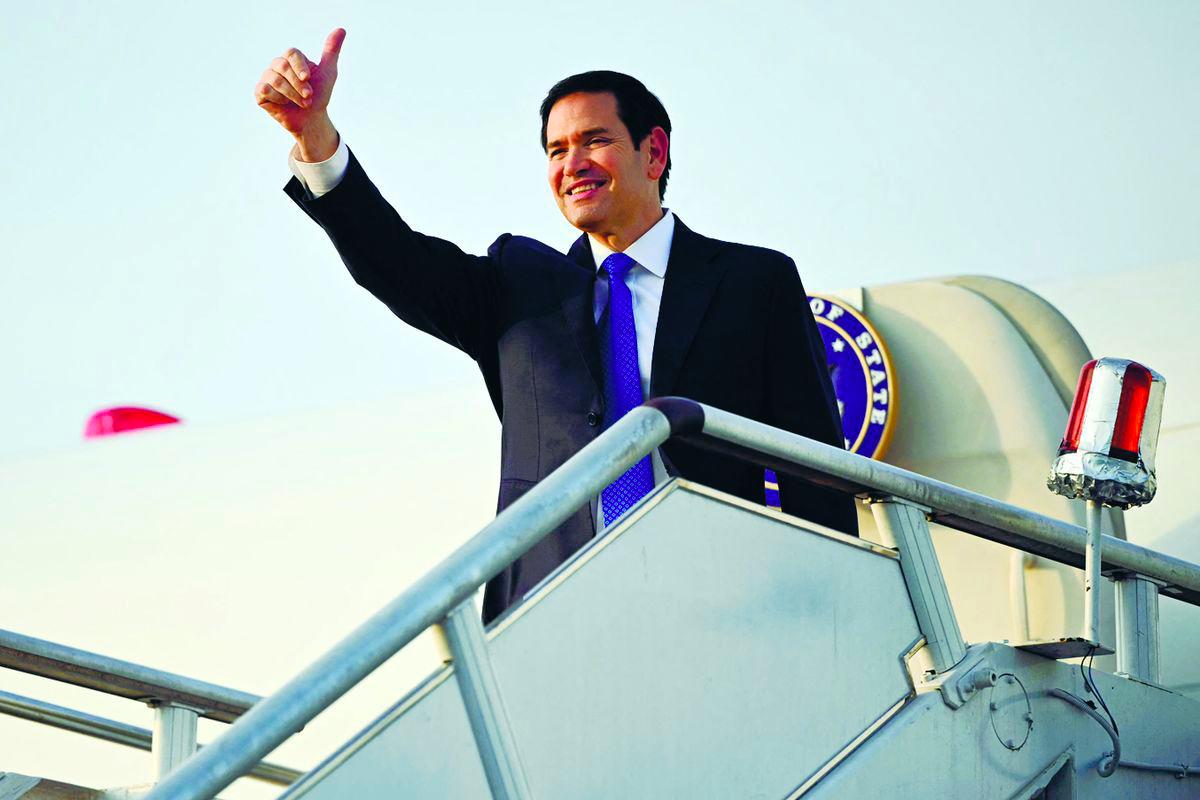THE public relations angle on the US Secretary of State’s website and Western media’s foreign affairs and business coverage of Marco Rubio’s recent visit to Southeast Asia was, unsurprisingly, predictable.
His mission was to:
Reaffirm US commitment to the Indo-Pacific by countering skepticism about President Donald Trump’s “America First” approach and to show that the US views the region as central to American interests and national security;
Bolster security ties and boost anti-China sentiment, particularly on the South China Sea disputed issues;
Promote the US as an economic partner and a better alternative to China for investment and growth.
In his initial remarks on meeting with counterparts from Asean countries, Rubio said: “We’ve been engaged for a very long time. We have strong partnerships, we have no intention of abandoning but rather strengthening and building upon.” From most accounts, he was not convincing or successful.
Rubio and Trump: Uneasy relationship
Everyone in high places of the US foreign affairs knows that Rubio does not have the full confidence or support of Trump for personal reasons. Their rocky relationship goes back a long time with Rubio’s denunciations of Trump, prominently displayed during the 2016 Republican presidential primaries.
Rubio criticised Trump’s foreign policy understanding, calling him a “touchy and insecure guy”, and stating that Trump “doesn’t know anything about policy”.
Rubio also quipped: “You know where Trump would be if he hadn’t inherited US$200 million (RM851 million)? Selling watches in Manhattan” and he publicly warned voters, “friends do not let friends vote for con artists”, directly targeting Trump’s credibility.
Rubio has since eaten humble pie and made peace with Trump. Though rewarded with a powerful position in the US administration, his role has been constrained by competing power centres in Washington, ideological shifts and his own apparent lack of alignment with Trump’s agenda.
This was evident when Rubio was bypassed for key special envoy roles – with Steve Witkoff appointed as Trump’s envoy to the Middle East, tasked with high-stakes negotiations like the Gaza ceasefires and Russia-Ukraine talks – while Rubio was assigned to less challenging assignments.
At the same time, key decisions – such as imposing tariffs on allies and publicly rebuking Volodymyr Zelensky – originated from Trump and Vice President
JD Vance. Rubio was visibly sidelined during the publicly disastrous Zelensky meeting, where he was described as passive and “slumped” on a couch throughout the meeting.
Mediocre diplomatic appointments
Meanwhile, Rubio also appears to have been left in the cold in various ambassadorial appointments made by Trump in the countries that the US wants to see its flag flying higher.
This includes the latest appointments in Singapore and Malaysia, with foreign policy analysts from leading US supportive media and independent commentators from social media panning the two nominations.
The nominee for Singapore is a former physician specialising in orthopaedics and sports medicine with no prior diplomatic experience while the appointee to Malaysia has been described as a self-proclaimed “alpha male”, with a reputation for courting public attention and engaging in sensationalist behaviour.
The primary qualifications Dr Anjani Sinha and Nick Adams bring to their appointments seem to be their unfamiliarity with their assigned countries and their eagerness to put Trump on a pedestal – proving that political sycophancy can be rewarding.
Apart from marginalised political and mediocre diplomatic leadership, the biggest obstacle to Rubio’s efforts to persuade Southeast Asian governments of the US’s good intentions is the widening credibility gap between its rhetoric and actions.
This gap is being fuelled by political inconsistencies and economic engagement that treats the region
more as a competitor or liability than a partner, all compounded by a fixation on the China threat that overshadows all other concerns.
It is telling that just as Rubio tries to reassure Asean countries that the US is an enduring economic partner and a more reliable alternative to China – while hinting at the possibility of better tariff rates – Trump was simultaneously announcing new, enhanced tariffs on several Asean countries, including Malaysia.
Asean officials and member countries remember the US’s withdrawal from the Trans-Pacific Partnership during Trump’s first administration as abandoning economic leadership in the region.
They are also fully aware that the US’s focus is not on Southeast Asia but on other regions and global crises, and that Asean is only a concern when countering China as the immediate goal.
Foreign policy and economic interests
Rubio’s staff would do well to advise him of the following concerns of Asean countries when reviewing the outcome of his shortened time in Southeast Asia and before pitching any future policy:
0 Asean nations do not want to be used as pawns in a great power game that they see as contrary to their multipolarity principles.
0 Asean values its “centrality”. US-led initiatives such as the Quad and Aukus are not only not helpful but also pose a threat to this centrality.
0 Asean nations will act strongly to safeguard their autonomy and non-alignment. US pressure for member countries to “choose sides” between the US and China is counter-productive, will not bring about peace or security and will be rebuffed.
0 Asean wants a partnership, not alignment, against a neighbour that is also their largest trading partner.
Finally, they should note that Asean foreign and economic ministers will be closely following the US-initiated global trade war and new uncertainties in the international economic landscape and rules of order.
Rubio should use whatever influence he has on Trump and his colleagues in the US administration to emphasise that the unilateral action relating to tariffs and bullying efforts to “rebalance” trade relationships at the expense of Asean countries will have a lasting negative impact on US-Asean relations.
Lim Teck Ghee’s Another Take is aimed at demystifying
social orthodoxy. Comments: letters@thesundaily.com









